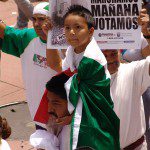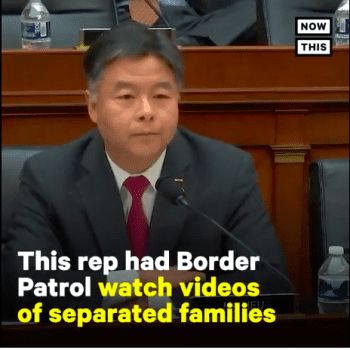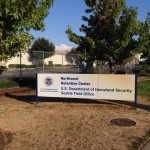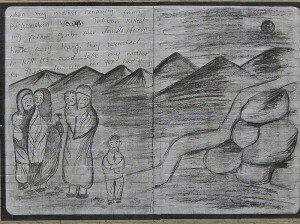
Are ‘Foreigners’ Wrong to Expect Liturgy and Catechesis in their own Language?
European foreigners arrived to America in 1492. Where non-European religion and culture were found, the effort was made to Europeanize the people. In the earliest days it was most often a distinctly Spanish Christendom that was imposed, not necessarily a Christianity that could be proposed and shared.
Considering the United Sates of America, the Church has welcomed migrants for quite some time.
Nevertheless, I have heard various persons complaining about liturgy or other ministries being offered in a language other than English.
Sometimes jokingly, yet without success in being funny, I’ve heard something like (,if not precisely): “Don’t you think it would be good for them to assimilate and worship in English?”
Other times, parishioners would leave a parish in protest when a Mass, offered in English, has more non-English speakers than English speakers, resulting in the prudent decision to offer the Mass in the language used by almost all of those participating in it.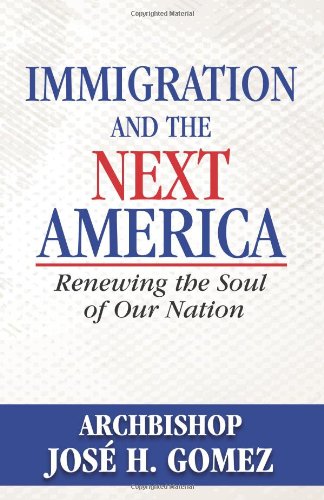
Hispanic – of Spain – language and culture has been present in these lands before any “English” colony could establish otherwise.
It’s interesting to note, at least for Catholics, that, in the land we now call the United States, the Spanish had established their language and culture for worship-with liturgy in Latin-, instruction, and civic life.
Archbishop Jose Gomez of Los Angeles touches on this in his text Immigration and the Next America: Renewing the Soul of Our Nation (2013).
He writes:
A century before the Pilgrims arrived at Plymouth Rock, and long before the English settlement at Jamestown, the Hispanic Catholic presence was firmly established in America. Spanish priests traveling with Ponce de Leon near southeast Florida in 1521 celebrated the firs Eucharist in the present boundaries of the United States. Catholics from Asia began arriving during this period, too, with the first Filipinos arriving in Morro Bay, California, in 1587 on a Spanish ship named for the Mother of Christ, Nuestra Señora de la Esperanza (“Our Lady of Hope”).
The first “Thanksgiving” was not celebrated by the Pilgrims in Plymouth, Massachusetts, in 1621. It was celebrated by Spanish missionary priests a half-century earlier in what is now Saint Augustine, Florida, in 1565.
It is, then, quite curious to note the discomfort, fear, and/or hostility English speaking United Statesians have towards non-English speaking brothers and sisters, many of whom having been in this land for for centuries.
Nevertheless, there are times when parish communities start to encounter a greater number of strangers among them – sometimes they speak Polish, Tagalog, Spanish, Portuguese, Korean, or some other language. Indeed, the language isn’t the only thing that comes with a people, but a culture – no less than a distinct way of life and a way of looking at life.
In my own experience, we’ll often find that there is actually a culture that accompanies a group of migrants, something that is truly foreign for many of “white”, european descent in the USA.
People have a right to migrate, and a right to not migrate. (This is something we can discuss at another time.)
People also have a right to keep, foster, and share their culture – and all that entails.
Here in the United States, where we have so many men, women, and children present without authorization according to the immigration policies of our government, strangers are usually forced to suffer numerous injustices.
With or without authorization, residents and visa holders, refugees and asylees, even the ‘naturalized’, some foreign-born but whose citizenship is recognized by blood relation to one or both parents with citizenship, and, just as despicable, some persons born in the United States without the skin and facial features of the caucasian are subject to a distrust, rejection, the perception of being inferior, fear, and/or hatred that some foreigners are usually immune from if the proper skin and facial features are present.
To keep us from digressing, let’s recall the original question: Are ‘Foreigners’ Wrong to Expect Liturgy and Catechesis in their own Language?
Spanish, Tagalog, Portuguese, or Korean, etc.: can the speakers of these languages and keepers of the corresponding cultures expect liturgy and catechesis in their own language, and according to their customs? Moreover, should we seek to make available the liturgy in according to different rites if foreigners practice according to a different rite?
Should we not, instead, as some seem to suggest – if not demand -, that the so-called “new comers” learn English, practice and learn according to the ways of the English speaking Catholic Church in the USA?
Where the Eucharist has been celebrated it has often been offered according to the language of the people. Jesus Christ did not celebrate the Last Supper in Latin, yet Latin was embraced when the Church became established in the centers of the Roman Empire. The same with Greek towards the east; and, in some places, Aramaic was preserved.
When the Evangelization – a work still in progress – of America began, the missionaries started to learn the languages of the Americans – not English or Spanish, of course – in order to reach the whole of each person.
Offering Christianity, sharing it, and diving into its doctrine in the language of those whom we have encountered is a common practice in our history.
Even before the Conquest that began in 1492, as noted in Pius XII’s Exsul Familia Nazarethana, Canon IX of Lateran Council IV of 1215 said:
Since in many places within the same city and diocese there are people of different languages having one faith but various rites and customs, we strictly command that the bishops of these cities and dioceses provide suitable men who will, according to the different rites and languages, celebrate the divine offices for them, administer the sacraments of the Church and instruct them by word and example.
Thus, in the same apostolic constitution, Pius XII insists that
… the sacred ministry can be carried on more effectively among strangers and pilgrims if it is exercised by priests of [each foreigner’s] nationality or at least who speak their language. This is especially true in the case of the uneducated or those who are poorly instructed in the Catechism.
Clearly, then, we should strive to not only welcome the stranger among us, but seek to accommodate the needs of their language and custom – for the sake of the Gospel and out of respect for the dignity of each person.
Welcoming the stranger has proven itself to be a difficulty for many in the United States and, sadly, because of this, the question of accommodating for liturgy is yet to come up in different communities.
However, there are some, we are proud to say, who have spent much of their lives fighting for justice for immigrants.
One of those persons passed on to the Light of His Face on Christmas Eve, and his name is Bernie Kopera.
I met Bernie while I served with the Diocese of Joliet as the coordinator of justice and peace ministries.
Anytime I would run into Bernie, he would be working to bring about justice for the oppressed.
He was recently interviewed with another friend, Concetta Smart, for the Chicago Tribune on their work against a proposed immigrant detention center in Indiana.
Bernie and Concetta had recently managed – for the third time in recent years – to help prevent the establishment of a for-profit immigrant detention center in the region; Crete and Joliet, Illinois, having been spared from such a sinful institution beforehand – with their help, of course.
Bernie fought for the migrant, the stranger among us. He had a passion for justice that had not be matched by many others.
The Chicago Tribune’s reporter asked Bernie if he could foresee an end to the need for his justice work.
The article shares that Bernie responded:
“I’m not finished yet […] Ask me when I’m on my death bed.”
Indeed, he worked for justice until his temporal end; and I believe he continues to intercede for the poor and vulnerable from a celestial place.
May we, like our brother Bernie, work towards a civilization of love that welcomes all people and that appreciates the beauty in each person’s language and culture.
Let us join together to stop for-profit immigrant detention centers, secure comprehensive immigration reform, and offer liturgy and instruction in the language of those whom we encounter – this is all the very least we could do for justice.
Come, you who are blessed by my Father. Inherit the kingdom prepared for you from the foundation of the world… For I was a stranger and you welcomed me… (Matthew 25:34-35)
Until next time,
If you have found the content on Keith Michael Estrada’s “Proper Nomenclature” to be useful, kindly consider supporting the cause with a donation.
Use the button below to donate through PayPal:![]()
Thank you!

